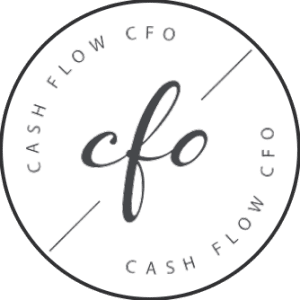
A CFO is the highest-level financial executive in your company and is responsible for overall financial strategy, cash flow, and planning. Although a business owner may have knowledge and experience with finance, once their business gets to a certain level, they generally find they don’t have the time, availability, or financial expertise to navigate to the next level.
I like to explain the CFO role with this analogy: Imagine you’re a business owner. You’re driving down the road in your car. Sitting in the backseat is your bookkeeper, accountant, and tax preparer looking out your car’s rear window. They’re looking at historical data – what’s already happened. They’re telling you where you went, how much you spent, where you’ve spent it, how much you’ve saved, and how much in taxes you’ll be expected to pay.
Sitting in the front seat next to you is your CFO. They’re looking out the front windshield, telling you what’s coming up, how to plan, and how to be profitable. They can see the hazards and opportunities ahead. Think of them like Google Maps seeing a slowdown ahead, so they suggest an alternative route.
While you need everybody in the car, each person has distinct skill sets. And the information they will provide to the business owner will be very different but equally important.
The primary responsibility of the CFO is to take today’s information and make wise plans and projections to keep the business profitable tomorrow.
Let me dive deeper into explaining some of a CFO’s everyday tasks and specific duties.

Streamlines Financial Processes
All businesses need a system of processes and procedures to keep things running smoothly. The CFO’s responsibility is to manage this from a macro perspective, and they streamline a business’ financial processes and strategies.
One way they do this is by ensuring the right people are in the right places. Each member of the financial team contributes to the overall financial vision of the business. The CFO ensures the team creates clean financials promptly and gets those records transferred into a management dashboard. This focus allows the CFO to do financial analysis and present this information to the business owner so they can make financial decisions for the company.
Creates a Financial Roadmap
The CFO helps to scale a business by creating a financial roadmap. They are saying, “Let me assess where we are currently with the profitability and scalability of our business model. Then we can put the right pieces together in this financial roadmap to allow us to hit those one, three, and five-year goals.”
The roadmap is a measurement of success and keeps the business on track. Do we measure up to what we planned? Those financial forecasts and budgets are in constant use to manage spending and growth and to make sure the business is on track to hit the financial goals set for the company.

Maximizes Cash Flow
The next duty of the CFO is to look at ways to maximize cash flow while minimizing expenses and eliminating financial leaks.
There are specific strategies a CFO will put in place to speed up money being collected and slow down the money leaving the business. They’re constantly looking at how to minimize expenses and eliminate financial leaks.
Are you paying for a subscription that hasn’t been used in the last 90 days? Cancel it. Is a facility empty or underutilized? Sell or move one of your other functions into it to make more room.
Oversees Financial Communications
Financial experts are phenomenal at number crunching. The CFO should be an expert communicator who will connect all those complicated financial dots in a way that makes sense. There are plenty of audiences a CFO will communicate with: the business owner, board members, shareholders, financial team members, etc.
The CFO takes businesses to the next level. They will be your trusted guide in building a roadmap to reach your financial goals.
You can listen to our podcast regarding this topic: Episode 1: What is a CFO? – Cash Flow CFO
